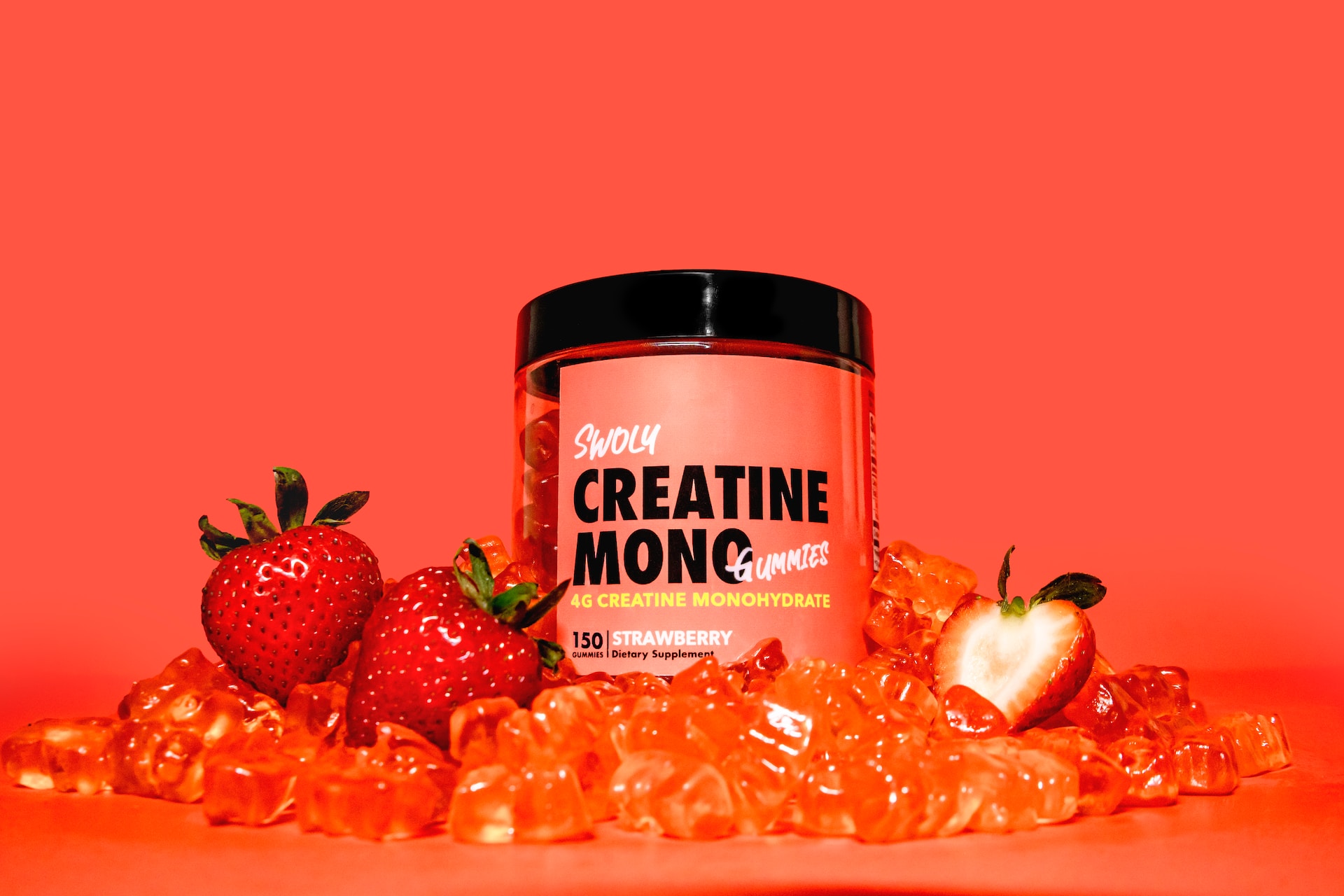Due to their capacity to support muscle growth, muscle recovery, and exercise performance, creatine supplements are popular in the fitness community. If you’re new to taking creatine, then you likely want to know how to use it for maximum benefits. So when is the ideal time to take creatine? I will dive into everything you need to know about adding creatine to your supplement stack.
When Should I Take Creatine?
When it comes to timing your creatine intake, there are four options available. Close to the start of your workout, after your workout, some other time not around a workout, or split up in multiple doses throughout the day.
Research results have been mixed, with one study showing lean muscle gains the highest when creatine is taken post workout, while other studies have shown no significant difference in when creatine is taken.

Being that there is no conclusive evidence stating when taking creatine is most beneficial, most athletes will best be served by ensuring they take the necessary amount of creatine per day without being overly concerned with timing.
With that said, let’s discuss each of your options in more detail.
Taking It Before Working Out
When taken before an intense workout, creatine helps saturate your muscles with creatine phosphate, an energy source for short bursts of exercise. This additional energy can boost your performance during weight training, translating into muscle mass and strength gains.
Take three to five grams per body weight with some carbohydrates for about 30 minutes before exercising for the best results. The carbs help maximize creatine uptake into your muscles. However, it is essential to note that taking creatine before a workout may cause stomach discomfort in some individuals.
Taking It After Working Out
Creatine supplementation after a workout can aid post-exercise muscle recovery and growth. Immediately following intense exercise, your creatine stores are depleted. Taking it within an hour after training helps restore these stores, which fuels the synthesis of new muscle proteins and muscle cell growth.
After your workout, three to five grams of the best creatine with protein and carbs is ideal. The protein provides amino acids to build muscle while carbs spike insulin levels, which helps creatine uptake.
Taking Creatine During Exercise-Free Periods
On non-workout days or during rest periods in your exercise schedule, a lower dosage of creatine, such as three grams once per day may be enough to help maintain muscle saturation.
The key to maximizing the benefits of creatine, is taking enough to keep your muscle fibers fully saturated. This will ensure your body has enough creatine stores to maximize muscle growth and repair.
What to Know Before Taking Creatine
Creatine is one of the most researched sports supplements, and when used as advised, it is highly safe for most individuals. However, before taking it, it is essential to examine the following considerations:
- It is not a replacement for a balanced diet and regular exercise.
- Select a quality creatine supplement brand and adhere to the suggested dosage.
- You may develop stomach pain, diarrhea, or nausea when using creatine supplements, this tends to level off after the initial loading phase.
- See your doctor, especially if you have any medical issues or are on any drugs before adding creatine to your daily supplement stack.

How Does Creatine Loading Work?
Creatine loading refers to a short term, high intake of creatine daily to quickly saturate the muscles. This practice is popular, but there is conflicting evidence on if it is truly necessary.
If you are interested in following a creatine loading phase, then here are the basics to follow.
- Taking 0.3 grams of creatine per kilogram of body weight for five to seven days. For a 200-pound (90 kg) person, this works out to about 20 to 25 grams daily, split into four to five equal doses.
- Reduce the dose to 0.03 grams per kilogram of body weight as a maintenance dose after loading. For a 200-pound person, this is three to five grams once per day.
- It saturates your muscle creatine stores quickly, leading to improved exercise performance and increased muscle mass within a week. The higher dose is meant for short-term use due to a lack of research on such doses.
- It is optional yet may produce results faster than not loading. Maintenance doses still work, yet may take three to four weeks to maximize muscle stores.
- It does cause weight gain, around one to two pounds, from water retention. Much of this initial gain is water and levels off with continued use. Gains beyond this are muscle.
What Does Creatine Do for the Body?
Creatine is a nitrogenous organic acid that occurs naturally in vertebrates and helps supply energy to all cells in the body. It increases levels of phosphocreatine in your muscles. Phosphocreatine helps rapidly produce the energy molecule ATP which fuels muscle contractions. More phosphocreatine means more energy for high-intensity exercise.
It supports more significant gains in strength and muscle mass over time, especially when combined with weight training. Creatine also enhances protein synthesis and muscle recovery after workouts.
Should You Take Creatine With a Meal?
Taking creatine with a meal that contains carbohydrates and protein can be beneficial, yet is not necessary for absorption or effectiveness. Creatine and meal nutrients compete to enter muscle cells via the same transporters.
Carbohydrates and insulin actively aid creatine uptake. Taking it with a meal or snack that releases an insulin response may slightly improve uptake. However, creatine on its own is still effective.
How Much Creatine Should I Take?
The recommended dosage of creatine supplements may vary depending on the individual’s body weight and exercise routine. However, a typical starting dosage is 5 grams per day.
Some individuals may prefer taking a higher dosage during the loading phase to saturate the muscles with creatine quickly.
It is essential to follow the recommended dosage and not exceed the daily limit to avoid potential side effects, whatever time you decide to take creatine.

Who Should Take Creatine?
Individuals who engage in high-intensity activities or sports that need explosive power and strength, such as weightlifting, bodybuilding, sprinting, or football, may benefit from creatine supplementation. They may also be advantageous for people who want to gain muscle growth or assist muscle recovery after an exercise.
Related Questions
When Should I Take Creatine for Best Results?
The timing of creatine supplementation may depend on individual preferences and tolerance. Some individuals may prefer taking it before a workout to enhance their exercise performance, while others may prefer taking it after a workout to support muscle recovery and growth.
The scientific research evidence is not conclusive when it comes to creatine timing. With that in mind, it is best for athletes to ensure they take enough creatine to keep their muscle stores saturated, instead of obsessing over timing.
Will Creatine Make Me Stronger?
While creatine does help build strength, gains are highly dependent on your training. It enhances the effects of weight training by providing more energy and enabling excellent performance and recovery.
So, maximum strength increases are seen when it is used along with a well-designed resistance exercise routine. Creatine alone will not make you stronger, yet when combined with consistent, progressive weight training, it can boost strength gains more than exercise alone.
Is Creatine Safe for Everyone?
For most individuals engaged in intense exercise, creatine supplements are considered an extremely safe nutritional supplement with no severe side effects when used correctly and as directed. However, it may not suit some people. As with any supplement, consult your doctor first, especially if you have an underlying medical issue or are on any medications.
Conclusion
The best time to take creatine depends on your individual goals. Either if you want muscle growth or to maintain consistent creatine levels over time. Regardless of when you take creatine, following the recommended dosage and consulting with a healthcare professional is essential.